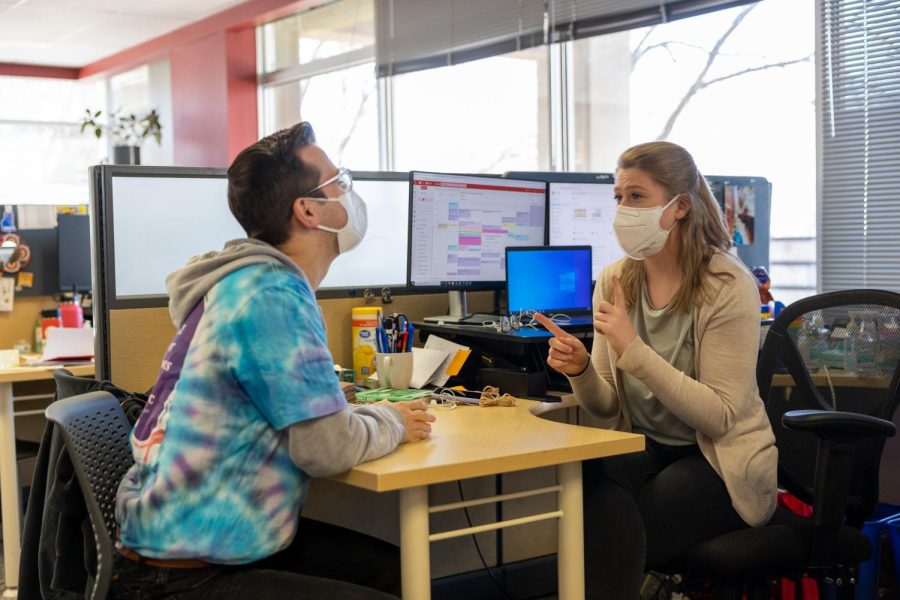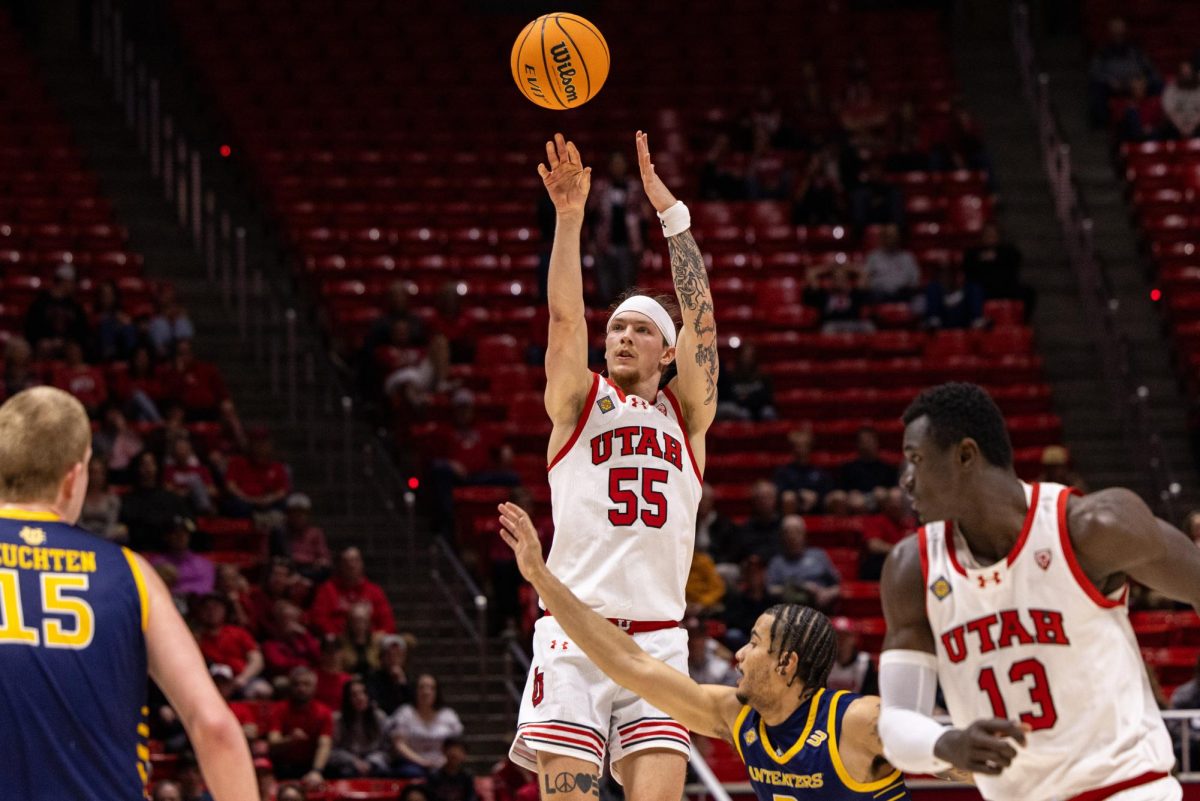Cowley: The Bennion Center’s Alternative Breaks Inspire Activism
Student discussing with counselor in the Bennion Center in the A. Ray Olpin Student Union in Salt Lake City on Tuesday, March 1, 2022. (Photo by Jonathan Wang | The Daily Utah Chronicle)
March 7, 2022
College is a formative time for many people. Oftentimes, college offers new perspectives and ideas to students. The information learned in college can have a significant impact in shaping students’ beliefs and senses of identity. College may be the first time some students have been exposed to injustices that occur in the United States and beyond. Here on campus, the Bennion Center’s Alternative Breaks program offers a hands-on, immersive week of community service to educate students on injustice in the U.S. and beyond.
Starting in 1997, Alternative Breaks enabled students to engage in community projects addressing different areas of injustice around the country during fall and spring academic breaks. For the upcoming spring 2022 break, experiences in the states include marine conservatism in Santa Cruz, California, urban environmentalism in Portland, Oregon and even weekend programs centered around environmental stewardship in Moab. One experience even takes students to British Columbia, Canada to learn about community health. By sending students into different communities to gain first-hand experience with issues and solutions, Alternative Breaks foster an environment for active learning and reflection.
Grace Hymel, the program coordinator for the 2021-2022 Alternative Breaks Executive Board, elaborates on what a student going into an Alternative Break will experience. “[Before the break] we’re running our justice workshops, where we introduce these concepts around volunteerism and cultural humility, and how we want to be humble and ourselves and knowing like what our identities and experiences are,” Hymel said. “[During break] we are doing reflection every night. So the goal of that is to synthesize people’s experiences with the education that we’re doing and the direct engagement and think about why this matters.” After the break is over, students attend one final event. “[W]hen folks come back; we have a big event called reorientation. Okay, what did you learn? Why does this matter? How are you going to communicate that to people and also what does this mean for your life beyond the week that you traveled?” Hymel said.
Alternative Breaks hopes to broaden the perspective of those who participate and encourage lifelong dedication to activism. Experiences during breaks can inspire change in the communities students return to. Hymel mentioned a student who attended the urban environmentalism break, who then started working on a period panties initiative. “I see people taking their knowledge and passion from our breaks into projects.”
Programs like Alternative Breaks are important for creating long-term engagement in community service and working towards justice. People dig deeper into critical rather than passive engagement. “They’re looking at solutions that are like long term.” Studies have shown that people who engage in activism feel a sense of empowerment through their actions and a stronger sense of identity and belonging. People in countries that score higher on the EU Social Justice Index are also considered to be happier than people living in places that score lower. Not only do students feel more empowered through activism, but they are happier, creating a better environment overall.
Alternative Breaks offered by the Bennion Center is an important tool to educate the student body on the injustices people face today. Not only does the program seek to educate, it also creates an environment where students can reflect on their biases and grow. Having programs such as this is vital to promoting growth and change on campus and making our university a more aware and active space.









